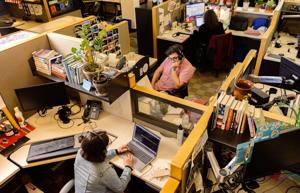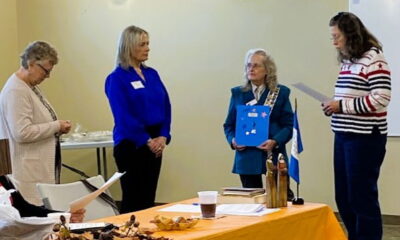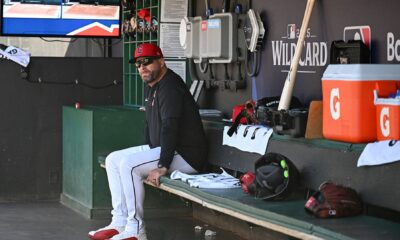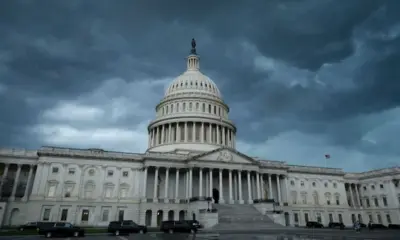Education
KUOW Raises Nearly $1.5 Million After Federal Funding Cuts

Seattle’s NPR affiliate, KUOW, successfully raised nearly $1.5 million in less than 12 hours through an emergency fundraising campaign on March 15, 2024. This urgent effort was initiated following Congress’s decision to retract $9 billion in previously allocated funds for public broadcasting, a move that significantly impacts funding sources for stations like KUOW.
The cuts included $1.1 billion from the Corporation for Public Broadcasting (CPB), which supports NPR, PBS, and various member stations across the country, including ten radio stations and four public television stations in Washington. For KUOW, the funds from CPB represent around 5% of its revenue, equating to approximately $1 million. This financial support is crucial for maintaining infrastructure, such as satellite interconnections and emergency alert systems.
The emergency campaign commenced at 06:30 and quickly garnered community support. With a group of donors pledging to match contributions up to $700,000, KUOW reached its fundraising goal shortly before 13:30, ultimately collecting a total of $1.487 million. Annette Promes, KUOW’s chief marketing officer, expressed surprise at the swift success of the initiative, stating, “We were not expecting that we would meet our goal so early today. It has been just overwhelmingly successful for us.”
The House of Representatives approved the funding cuts, with a narrow vote of 216-213, in line with a proposal from President Donald Trump. The administration’s aim is to reduce federal spending deemed unnecessary, including nearly $8 billion in foreign aid and support for democratic institutions in developing nations. This legislative action, which now awaits the President’s signature, signifies a potential shift in the landscape for public media, which has been criticized by the Trump administration as fiscally bloated and politically biased.
In response to the funding cuts, Kerry Swanson, KUOW’s interim general manager, articulated the risks to public information access, stating, “Those who threaten open access to information do so because they fear the power of an informed public — a public capable of critical thinking, of holding power to account, and of exercising self-determination.”
The impact of the funding cut is immediate, affecting the current fiscal year and leaving stations with minimal time to adjust. Smaller rural stations face even greater challenges, with Yakima Valley’s KDNA potentially losing up to 40% of its funding. To address the broader implications, KUOW is compiling a list of other affected stations in Washington.
While KUOW has met its immediate fundraising goal, Promes emphasized the need for ongoing community support, particularly through monthly donations, which provide a more stable revenue stream. “We are here for people who can pay, and we’re here for people who can’t,” she remarked. “We are here to provide news and information to everyone, whether you can afford to access it or not.”
The swift response from the community underlines the vital role public broadcasting plays in providing accessible information, especially in times of uncertainty. As KUOW continues to navigate the financial challenges ahead, the station’s commitment to serving its audience remains steadfast.
-

 Technology4 months ago
Technology4 months agoDiscover the Top 10 Calorie Counting Apps of 2025
-

 Health2 months ago
Health2 months agoBella Hadid Shares Health Update After Treatment for Lyme Disease
-

 Health3 months ago
Health3 months agoErin Bates Shares Recovery Update Following Sepsis Complications
-

 Technology3 weeks ago
Technology3 weeks agoDiscover 2025’s Top GPUs for Exceptional 4K Gaming Performance
-

 Technology2 months ago
Technology2 months agoElectric Moto Influencer Surronster Arrested in Tijuana
-

 Technology4 months ago
Technology4 months agoDiscover How to Reverse Image Search Using ChatGPT Effortlessly
-

 Technology4 months ago
Technology4 months agoMeta Initiates $60B AI Data Center Expansion, Starting in Ohio
-

 Technology4 months ago
Technology4 months agoRecovering a Suspended TikTok Account: A Step-by-Step Guide
-

 Health4 months ago
Health4 months agoTested: Rab Firewall Mountain Jacket Survives Harsh Conditions
-

 Lifestyle4 months ago
Lifestyle4 months agoBelton Family Reunites After Daughter Survives Hill Country Floods
-

 Technology3 months ago
Technology3 months agoUncovering the Top Five Most Challenging Motorcycles to Ride
-

 Technology4 weeks ago
Technology4 weeks agoDiscover the Best Wireless Earbuds for Every Lifestyle





















